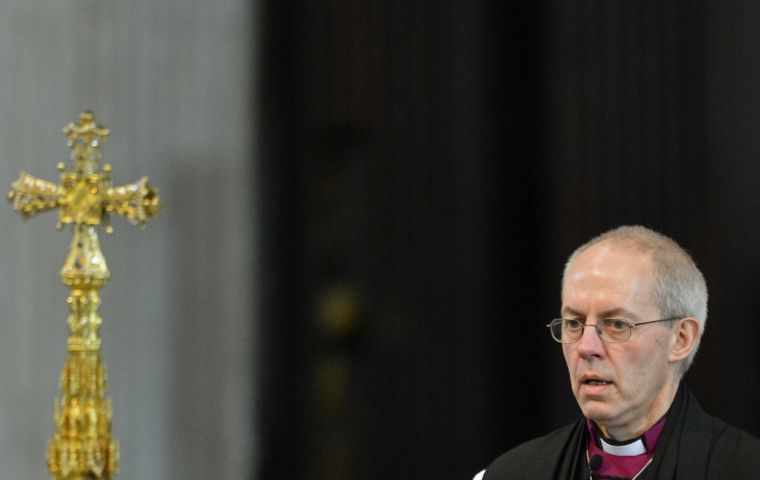Archbishop Of Canterbury In Bid To Save Iraqi Christian From Deportation

The Archbishop of Canterbury has intervened in an attempt to save a Christian asylum seeker from being sent back to Iraq.
Both Justin Welby and one of his advisers have written separately to the Home Office pleading that the man not be returned to the country of his birth.
The man, a Syriac Orthodox Christian who fled to Britain to escape the deadly ravages of Islamic State, had his claim for asylum rejected, aong with two appeals.
His bid to appeal for a third time has been backed by Mark Poulson, interfaith adviser to the Archbishop of Canterbury, who wrote to the Home Office last week "unequivocally endorsing" the asylum seeker.
Poulson wrote: "We have been extremely impressed with his...willingness to spend time helping others whilst his own situation is so distressing."
In an earlier letter from Welby, dated last September and reported by The Guardian, the Archbishop said he had "been impressed with his positive attitude, integrity, and the quality of his work".
He added he described him as clearly "someone who wishes to contribute to society... He is someone who would be a great asset to the United Kingdom. I strongly endorse [his] desire to seek asylum in the UK."
The asylum seeker told The Guardian that he and his family were among more than 100,000 Christians and Yazidis who fled Mosul in 2014 after Islamic State took control. They lived in a church basement in Irbil for a year. He arrived in Britain on a student visa and applied for asylum when it expired in May 2015.
Judge Clive Lane, who dismissed the second appeal in October, decided the asylum seeker could return to his family in Irbil who appeared to "live in safety" there.
The man's solicitor, Susan Liew, in seeking permission to appeal against Lane's ruling, said it was "erroneous, perverse and irrational" to believe he could be relocated back there as the family is still in the church basement, according to The Guardian.
The man told The Guardian: "I feel safe in Britain. I can't go back to Kurdistan, it's a different government, it's not our country. They don't deal with us like people from the same place. It's a different language." He said he did not speak Kurdish and his degree would not be recognised in Kurdistan.











